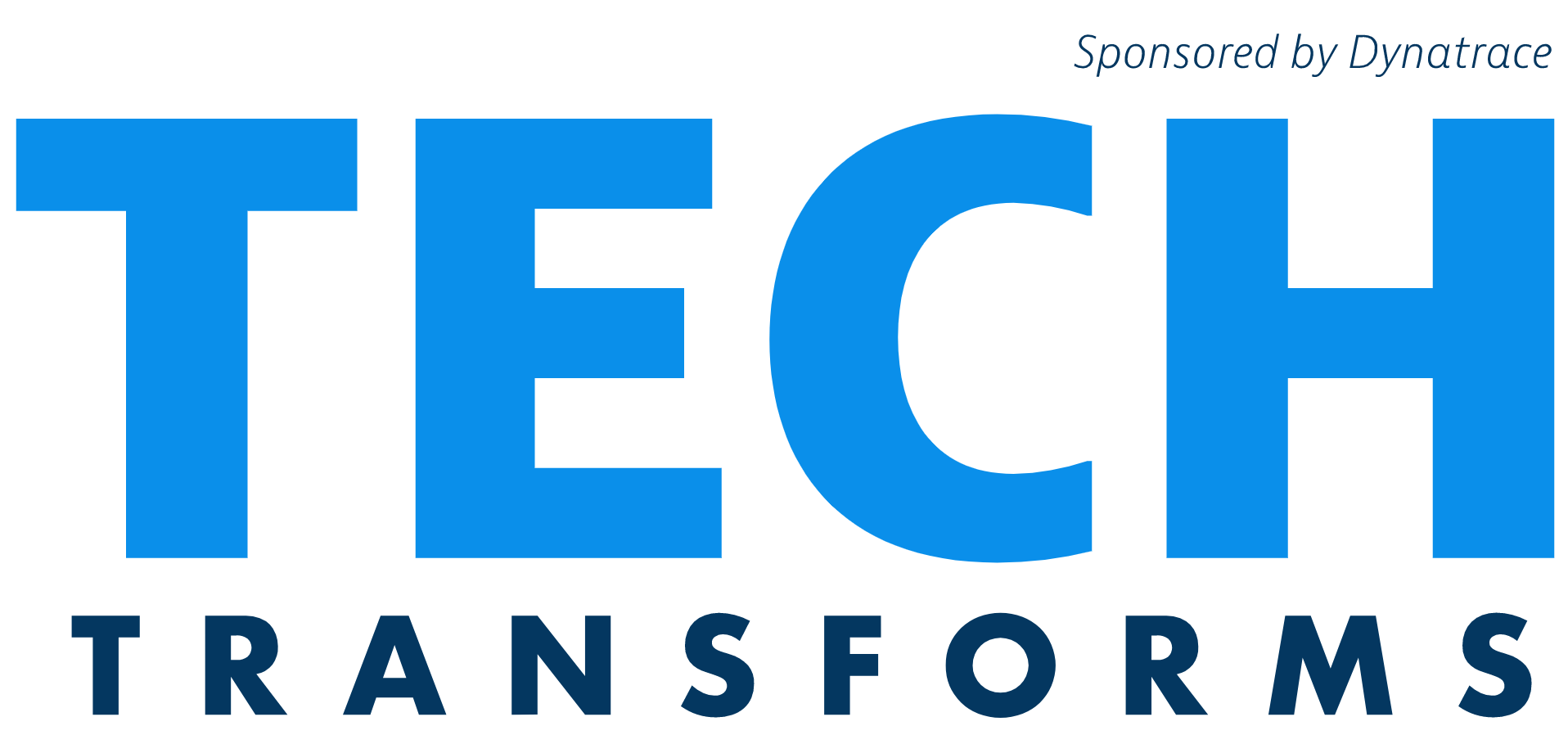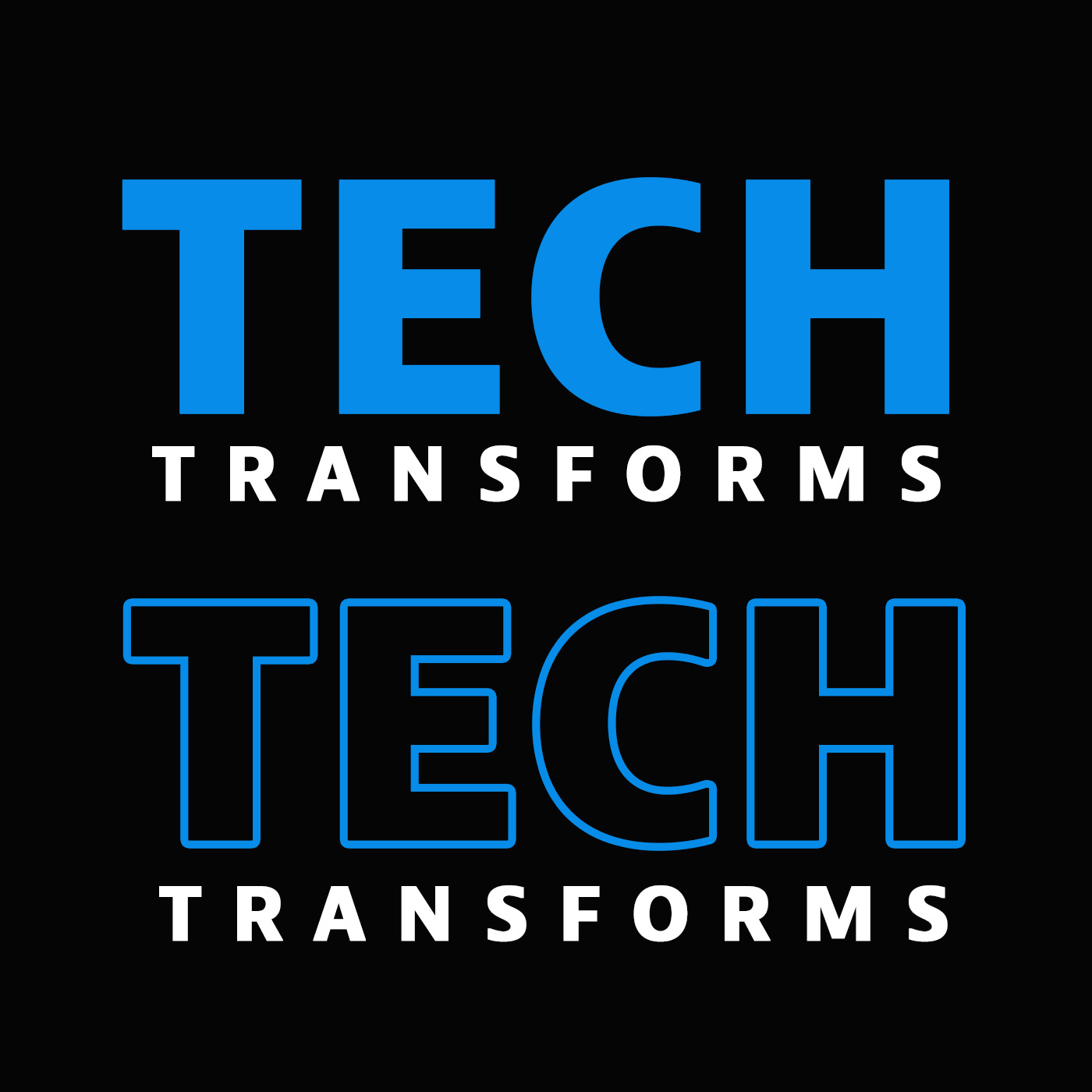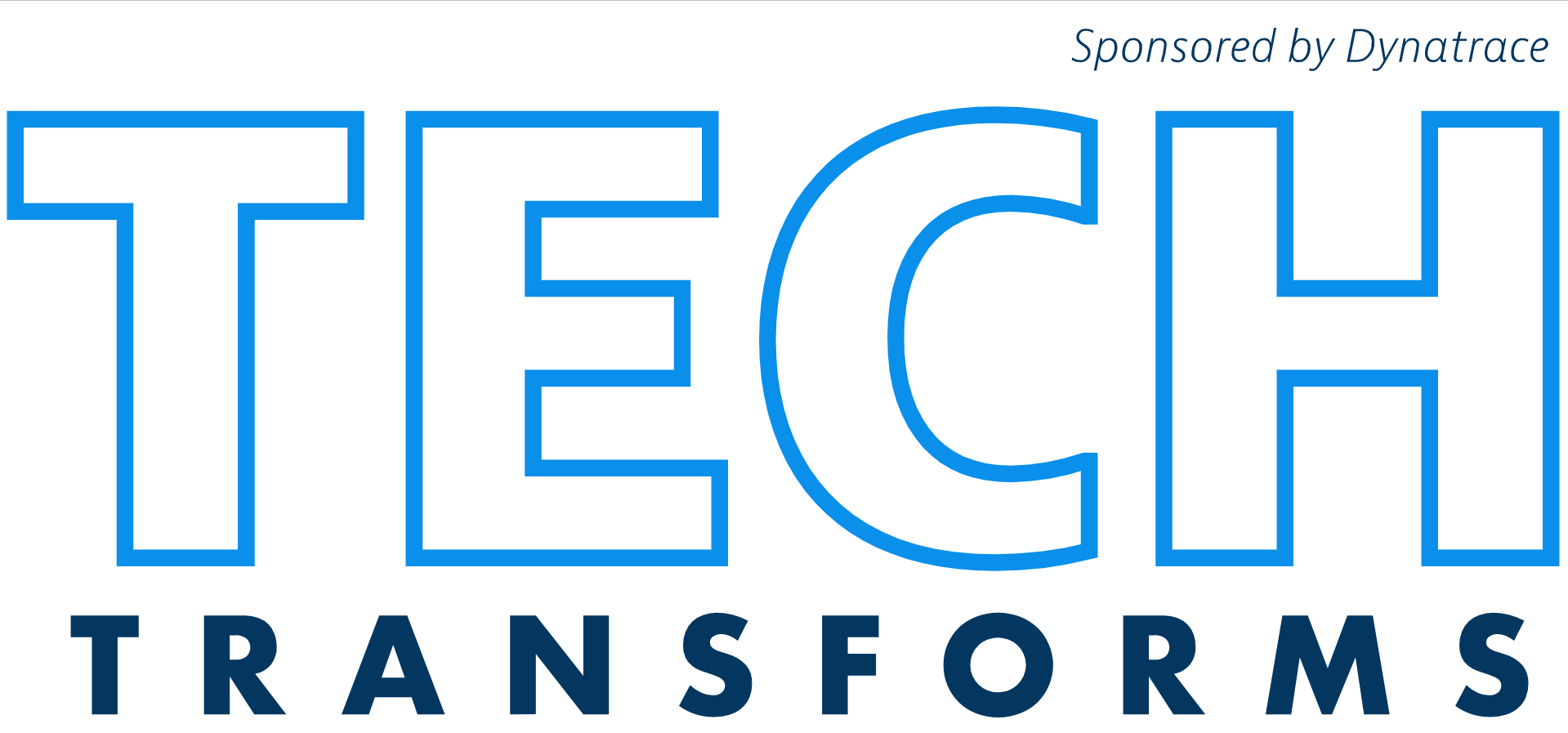Episode 14
Looking Forward: 2022 Predictions with Willie Hicks, Lonye Ford, Jazmin Furtado, Rayvn Manuel, and Tracy Bannon
On this special episode of Tech Transforms, Carolyn and Mark look to the new year with trends and predictions for government technology. Willie Hicks Public Sector CTO at Dynatrace, Lonye Ford CEO at ARLO Solutions, Jazmin Furtado Military Captain at Space Force, Rayvn Manuel, Senior Application Developer at NMAAHC and Tracy Bannon, Senior Principal / Software Architect & DevOps Strategic Advisor at MITRE talk about their predictions as we move into 2022.
Episode Table of Contents
- [00:32] Willie Hicks’ 2022 Predictions for Government Technology
- [09:07] Lonye’s 2022 Predictions on the Acquisition Process
- [17:09] Jazmin’s 2022 Predictions for This Day and Age
- [21:31] Rayvn’s 2022 Predictions in Technology Will Never Be the Same
- [24:03] Tracy Bannon’s 2022 Predictions on New Technology
Episode Links and Resources
- Willie Hicks - CTO of Public Sector at Dynatrace
- Lonye Ford - CEO of ARLO Solutions
- Jazmin Furtado - Military Officer at Space Force
- Rayvn Manuel - Senior Application Developer at NMAAHC
- Tracy Bannon - Senior Principal/ Software Architect & DevOps Strategic Advisor at MITRE, ambassador for the DevOps Institute
Willie Hicks’ 2022 Predictions for Government Technology
Carolyn: Today, we have a special episode to cover some topics of tomorrow. We asked a few of our guests their predictions for the U.S. Government technology in 2022. First, we have Willie Hicks, public sector CTO at Dynatrace. The AI arms race. Will you talk about that a little bit and talk about where you see the U.S.' position in the AI arms race? I know this ties into the massive, National Security Commission's on Artificial Intelligence final report.
Willie: Yes. The term AI arms race is actually in academia and industry, it's a debated term. Are we in an arms race? Some people are more purists when they think of an arms race. You think about the Cold War, you think about past arms races. There are certain criteria around that. Like the money that's being spent on, if you think of a conventional type arms race, both sides.
Or multiple sides are investing millions, billions of dollars on arms, on different weapon systems, on trying to keep up, or keeping a step ahead of the adversary. You could argue two things. One, that you don't see that kind of spending today in AI, at least from the government. You do see spending across the board, industry-wise, a higher increase on spending. But some would argue that just by that definition, it's not really an arms race.
You can make the argument that AI itself is not a weapon. AI is a tool that could be used to make weapons more lethal, more effective, but in itself, AI is not a weapon.
By the textbook, there's some debate if there is, but let's just set all that aside to answer your question.
How to Stay Advanced
Willie: Leave out spending. There is definitely increased competition. If we want to say that there is a race from a technology standpoint, that's from industry and from the government, and that's underway today. We see that daily in the advances and the money that's being spent in AI. But also you see that in the national security report that you had mentioned. There are a lot of studies going on.
How do we technologically stay advanced or ahead of our adversaries? Or, at least, we've got to make sure that we stay on top because at the end of the day, AI could be just like anything. AI could be used for many wonderful things. Like I was saying in medical applications, we saw this during COVID. People often think about, "Wow, the vaccines that we have, they came out really rapidly."
Some people say not fast enough, but how long vaccines usually take? It came out very rapidly. A lot of that is due to some new techniques for the whole RNA type of vaccine. But also, there was a lot of AI. There was a lot of compute horsepower that went behind the analysis of a lot of these drugs, a lot of the virus, DNA strains and all that.
There is a lot of good. But then, AI, this technology arms race, this competition could also be used by state actors. I even hesitate and sometimes I don't even like to think about it. It could make war more lethal, more kinetic. Let's just say it can make weapon systems run out of control. We're not going to the Skynet world where things just take over. But what you could have is what we've seen today, which is fascinating.
2022 Predictions on AI
Willie: We have seen AI being used in things like drones that can be sent to a target, loiter around, scanning the system. Waiting for his target to come in range and then go and attack that target. That arms raise is to be able to not only have those same capabilities but also counter those capabilities.
Also in the cyber front, how do we protect our power grids? How do we protect our water systems? AI is being deployed in all of these ways to attack us in multiple different ways.
Carolyn: Is AI being used to protect as well?
Willie: It's definitely and defensively being used.
Mark: You mentioned the National Security Commission on Artificial Intelligence's final report a couple of times here. I wanted to ask you if you had a couple of takeaways from that?
Willie: That is a pretty beefy document and a lot to go through. But at the end of the day, there were some really good takeaways. Honestly, there were some, no-brainers in there. Number one in my mind, we've got to increase funding and research. This goes back to a question you asked earlier about the arms race. One reason you might not want to call it an arms race is because a lot of money is not being put into it by the government.
Mark: It's got to be an arms race if there's money, if there's not money.
Willie: Let's just cut to the chase. There needs to be more funding of research, public and private. One thing that I found interesting is that we need to address the talent and diversity deficit in AI. More importantly, we need to address how to develop an internal government talent to meet these challenges.
Diversity in AI
Willie: I say diversity because I mentioned AI systems being able to recognize targets. To be able to look for certain things and understand patterns, and then respond to those patterns. So some might argue that we need diversity in thinking in AI.
Some argue that AI systems themselves aren't inherently biased because they're programmed by humans. But if humans are programming some of their biases, even indirectly into the system, they're not recognizing targets. They're not really factoring things like skin tone and how people look.
Carolyn: Yes, they are inherently biased because they're being programmed by humans.
Willie: I'm trying to be tactful about it, but at the end of the day, that is a very important part of the report. We need to have that diversity of talent and we need more, I shouldn't say better, but we need more talent in this field. Also, I found it interesting that the report called out. This is something dear to me. They're calling out agencies, the government, especially.
They're focused on the IC needs to really start leveraging AI to more fully automate tasks. Things that are repetitive, things that are prone to error, things that could be tasked well to an AI. Those things need to be looked at for more automation through AI systems. So those are some of the bigger takeaways that I saw. But also most importantly, more industry outreach and partnering.
Carolyn: Thank you Willie. Next, we ask Lonye Ford, CEO of Arlo Solutions. What are your predictions? You've talked about a lot of things, like a cyber security integrator. What are your predictions for cyber security in the next year? We're coming up on the end of the year. We all love a good prediction.
Lonye’s 2022 Predictions on the Acquisition Process
Lonye: I only speak to the government. In the next year, I hope that we see more of our cyber experts in the acquisition process. Working with the acquisition teams to build out these statements of work and those types of things for these program offices. I’d love to see that. I think that we'll continue to see more automation, the government wants speed.
Cyber from an authorized perspective, is not a speedy process. We're going to start finding ways as our cyber workforce works with our developers to integrate. You hear people say bake it in, grow it in. But to really focus on doing that in real life, not just a cliche term, “how do we do that”?
I'm seeing now that the cyber is working more with the developers on the technology side. My prediction, again, I told you I'm optimistic that it’s going to mature. We're going to start moving more of that cyber work to the left so that you're not trying to prove things to me via a document. Once we get to the end of this gravy train and you're baking that in, the developers are understanding the responsibilities from a cyber perspective. So, I would love to see that.
I know we're going to see a lot of focus on supply chain rightfully so. That truly needs to be a focus in the government. I see it from an internal perspective. It's a real issue. Supply chain and software supply chain too. I'm not just talking about hardware. Based on the executive orders and those types of things that's coming out, there's going to be a major focus on supply chain. That would be my prediction.
2022 Predictions From the DoD Perspective
Lonye: I hope to see from the air force and for DoD, I work mostly in the air force. From the DoD perspective, we went through a time in cyber where everything was decentralized.
A lot of the workforce was decentralized. Each program has their own cyber and doing their own thing. They're spending their money on cyber. It's time to centralize some of that. I don't mean take away the decision making from other agencies. But I do think that the workforce, to understand cyber and cloud and DevSecOps is slim.
The air force and DoD in general is paying for all these different pockets of cyber expertise. I'm including myself, I'm a vendor and I'm in those pockets. But you're hiring all these different vendors to do cyber for all these different programs that are doing it differently, that truly don't understand DevSecOps.
They're learning on the government's dime too, and there's no centralization of it. If we centralize training, if we start centralizing some of this and then from our expertise, our experts out to these different program offices, that will be a win too. I hope to see more centralization in that as well.
Carolyn: Leverage each other's wisdom. I heard about acquisition, better processes up front, DevSecOps, supply chain, and then to centralize. That's a shift from 20 years ago.
Lonye: We really shifted, decentralized. The workforce is so slim and there is a lot of competition. We were just talking about the D.C. area once the Amazons are coming in, there's competition in the workforce. So people, the cyber workforce because it's so popular right now, they have a lot of options. We have to find a way to use our workforce as smartly as possible.
Decentralization
Carolyn: Now it's interesting that you brought up this whole decentralization thing. It seemed like working in the DoD arena, that was the strength. I understand why they would do that. I don't think this has been a common thought that the civilian side of the house is in some ways ahead of the game. They are more centralized in their approach on some of this stuff than the DoD. It may be because of the nature of what they do, they're very siloed.
Lonye: I agree. Money and funding makes a big difference. In industry, at the company there's someone at the top that's controlling how they spend their funds. That person's going to look at everything from an enterprise perspective. DoD, internal too to the government, the way that the money is farmed out to the different agencies, that they can come up with their own solutions in their own workforce. That's what they're doing.
They are building solutions that work specifically for them. We do, we try our best to be more focused on enterprise, but it's tough. We're looking at a diverse need from someone who needs to work on CE and may work on the air conditions for a DoD. Someone else may be focused on jets, someone else may be focused on providing typical IT.
Their needs are so vast and different that it is hard to centralize that from a funding and a solutions perspective. It's difficult, but where we could centralize is the cybersecurity support because that support shouldn't change. Whether I'm assessing it, or authorizing it, I say all the time, "You can put anything in front of me."
The Right Framework
Lonye: I can show you how to assess and authorize code going to the F35, or how to assess and authorize your air condition system. If you have the right framework, even if I don't understand the technology per se, that's when I collaborate.
Carolyn: Thank you, Lonye. Our next prediction is from Captain Jazmin Furtado of the U.S. Space Force. I want to get your predictions for technology in 2022.
Jazmin: We're going to continue to see growth in AI capabilities and not just within the DoD, but everywhere. We'll see a lot more and better personalized services that we see in finance, medical, legal, things that are more for you. So you no longer need to go through a middle man. You no longer have to go through trial and error to get and to converge on the right answer, you can get it faster.
These services are a lot more available and easily available. The barrier to access is a lot lower because they’re technological solutions, rather than people and process solutions. I also think we're going to see an increase in no-code capabilities. People are able to access software or tools without having to know how to code. They can have better user interfaces.
We're going to continue to see technology with increasingly better user interfaces. Allow people to be more data minded without having that formal background. All of these just blend into more transparency and literacy when it comes to data. Because we can no longer afford to have people that are like, "Oh, I'm not technical."
Jazmin’s 2022 Predictions for This Day and Age
Jazmin: We are in this day and age where that's no longer something that we can afford to have. Everyone needs to be technical and be treated as an analyst in their own right. We're moving into this stage in society where everyone has to and everyone produces data. Everyone needs to ingest data, everyone needs to process it in their own way. Going into next year, we’ll continue to see services that emphasize that.
Mark: How do you feel the air force, maybe space force are too new to it, prioritizes this?
Jazmin: Data transparency and literacy are these sorts of tools. They are asking for it. They're definitely prioritizing it because these conversations are very difficult to have without these things. People need to be able to speak that same language. They can't do that without these tools, these no-code capabilities as visualizations. We need to have people go in and be able to do discovery into the data for themselves.
And we can't continue to just have, "Oh, we'll just present something to you about the status every month and you can make decisions." People need to be able to go in themselves and figure things up for themselves.
When we treat everyone as an analyst in their own right, it's becoming apparent very fast. The limiting factor in a lot of these conversations is that people don't have access to all the information that they need.
Carolyn: I'm going to give a sneak peek to a survey that we just completed among government and IT people. One of their number one pains was the lack of expertise in these very things that you're talking about.
The Highest Pains in the 2022 Predictions
Carolyn: Just that people are coming in, "Well, I'm not technical enough to understand what the data means." That was one of the highest pains that these IT managers that responded to the survey talked about.
Jazmin: That is not surprising.
Carolyn: Yes. Thank you, Jazmin. Now we will hear from Rayvyn Manuel. He’s a senior application developer at the national museum of African American history and culture and an army veteran.
Mark: As we approach 2022, tell us what your predictions for technology are going to be this coming year.
Rayvn: Do you want me to tell you about cultural institutions or in general?
Mark: In general, both.
Rayvn: There's a lot happening out there in technology and there's quantum computing. A lot of focus on AI and AIOps, ML, and MLOps. Those things are what technologists are focused on. I belong to a group and we're looking at Hyperledger, not Bitcoin per se.
For blockchain technology and cultural institutions, I'm thinking about how can a cultural institution leverage blockchain technology to track its assets and the objects? How can we even use Bitcoin maybe? The government is not ready for that. To use Bitcoin, to be able to procure things or to let people buy things for technology. There's also this push in the accessibility realm.
How do we leverage the existing technology that we have to make experiences for people with various disabilities? All disabilities, because when people say disabilities, they think of people who have no mobility or have visual issues or hearing. But there are other disabilities that are out there like cognitive disabilities. How do we use these technologies to give them similar experiences?
Rayvn’s 2022 Predictions in Technology Will Never Be the Same
Rayvn: It'll never be the same, a similar enhanced experience in cultural spaces. I believe that everything that I'm hearing from application development is how to take these monolithic applications and make them into microservices. That's all the buzz right now, so that's where those things are going. At my space in the museum specifically, it's how do I take mobile technology, things that can only be done on a mobile device, and make it so that we can have interactives that are contactless?
One of the things that I'm actually thinking about is for the application that I'm building with this other agent. One of the challenges is that if a person doesn't have a particular version of iOS or Android, they're not going to be able to engage. So what can we do? I thought, "Well, I can use a Raspberry Pi because they're small and blocky." But who wants to steal that from a place? That's something you can put in your pocket.
How can I actually use a Raspberry Pi and get the same experience as I can on a mobile device? It’s a challenge because the mobile manufacturers' devices are integrated. When you want to do AR or VR, it's integrated with the hardware. Mobile has certain libraries and a Raspberry Pi is pretty much a desktop. It's just an operating system and...




